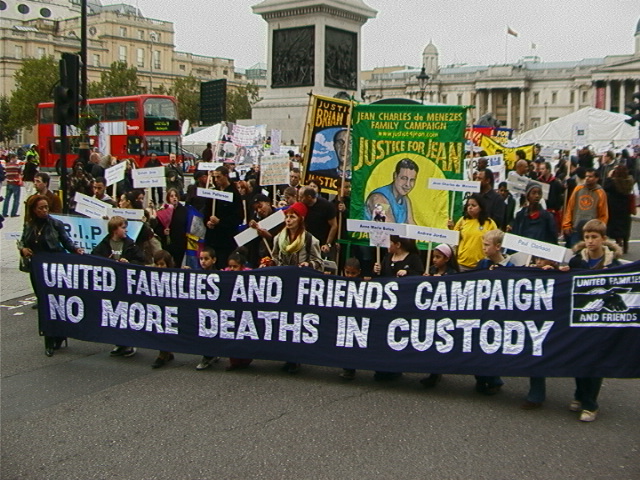Here follows a summary of research and findings pertaining to deaths in custody, it is hoped that by sharing this more widely, we are able to understand Seni’s death in context, and explain to those interested, why new laws are needed to protect vulnerable people in the care of the police
1. Mental health deaths involving police restraint
• Last month, a custody sergeant and two detention officers were acquitted of manslaughter relating to the death of Thomas Orchard in October 2012. A Home Office pathologist, Dr Delaney, identified that Thomas’ death resulted from a struggle and period of physical restraint including a prolonged period in the prone position and the application of an Emergency Response Belt across the face resulting in asphyxia.
• The majority of INQUEST’s police related cases over the past five years have involved the death of vulnerable individuals in some form of mental health crisis.
• In 2015/16, of the 14 people who died, seven were identified as having mental health concerns. See IPCC annual statistical report here.
• Following an eleven-year low of 11 police deaths in 2013/14, the number of deaths in or following police contact rose sharply to 17 in 2014/15. Eight out of those 17 deaths were of people identified as having mental health concerns; five were restrained.
• This marks the continuation of a trend in mental health related deaths where in 2012/13 of the 15 people who died in or following police custody, almost half (seven individuals) were identified as having mental health concerns.
• The circumstances of Seni’s death are strikingly similar to the death of Roger Sylvester in 1999. Despite 11 years that separate the two deaths, both men were black, both were restrained for a prolonged period in the prone position by multiple officers in a mental health hospital setting. Despite the training and guidance that followed Roger Sylvester’s death, the same basic failures prevailed.
2. Race and restraint related deaths in police custody
Analysis of INQUEST’s monitoring statistics suggest that use of force/restraint is more likely to be a feature of the circumstances of BAME deaths in police custody. (Statistics collected since 1990. Analysis conducted in Nov 2016).
• The proportion of BAME deaths in custody where restraint is a feature is over two times greater than it is in White deaths in custody.
• The proportion of BME deaths in custody where use-of-force is a feature is over two times greater than it is in White deaths in custody.
• The proportion of BME deaths in custody where Mental-Health-related-issues (MH) are a feature is nearly two times greater than it is in White deaths in custody. Other relevant background relating to race in use of force/restraint related deaths:
• IPCC use of force review 2016 and INQUEST’s short response.
• Casale review looked at race in the context of Sean Rigg’s restraint related death including at at p70. 3. Government action – what is being done?
• In April 2017, the European Committee for the Prevention of Torture and Inhuman or Degrading Treatment or Punishment (CPT) published their report on the UK. The Committee highlighted the lack of a uniform approach to the use of means of restraint across the 42 police forces in England and Wales and that no reliable nationwide disaggregated data on the use of force or means of restraint was available. They expressed their concern that ‘given that detained people continue to die in police custody in England and Wales following the application of the means of restraint, such inconsistencies in rules and practices are an obvious cause for concern for a body with the CPT’s mandate’.
• See here for INQUEST’s response to national guidelines issued in January 2017 by the College of Policing on use of police restraint in healthcare settings.
• The publication of Dame Angiolini report has now been postponed until after the election. In February 2016, the Home Secretary announced an independent review, conducted by Dame Elish Angiolini QC, into Deaths in Police Custody. Seni’s death was one of the pivotal cases leading to that decision. INQUEST Director Deborah Coles was special advisor to the review.
• Seni’s case (alongside the case of Sean Rigg’s) was key to the MPS decision to commission an independent review on mental health and policing (conducted by Victor Adebowale of the charity Turning Point).
• Evidence of Seni’s death was submitted to the Home Affairs Select Committee as part of their 2015 enquiry into policing and mental health. Final report here.
